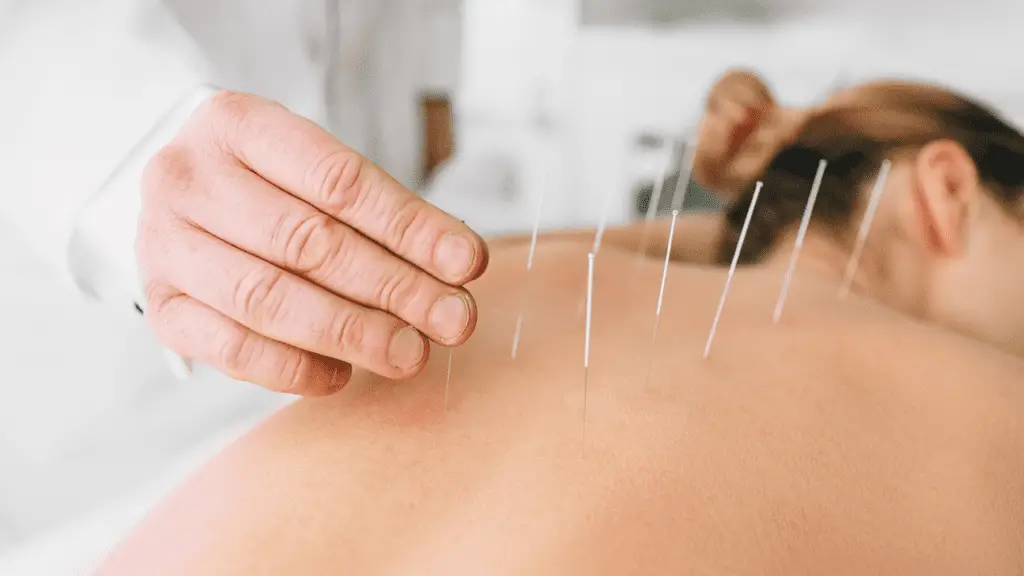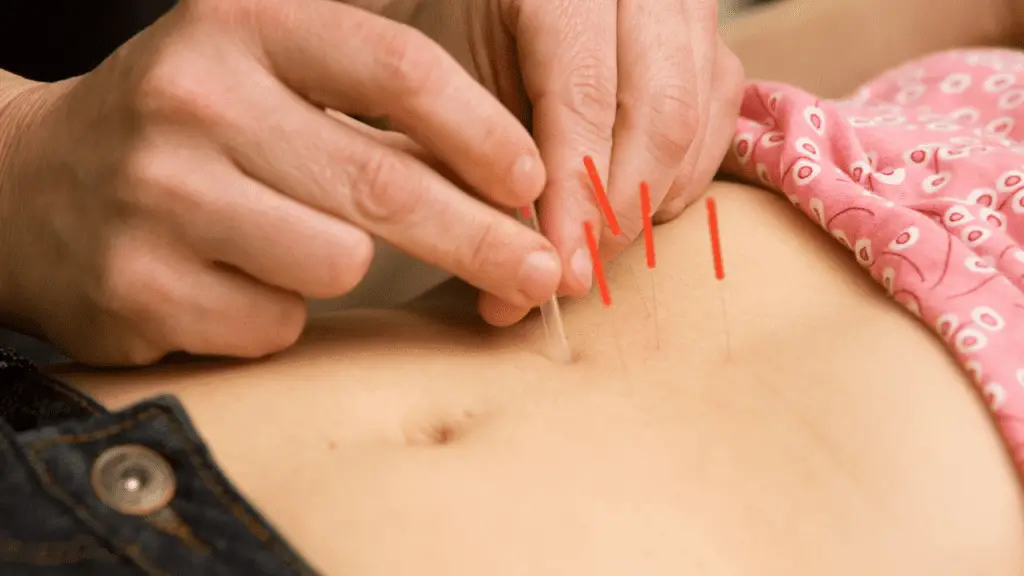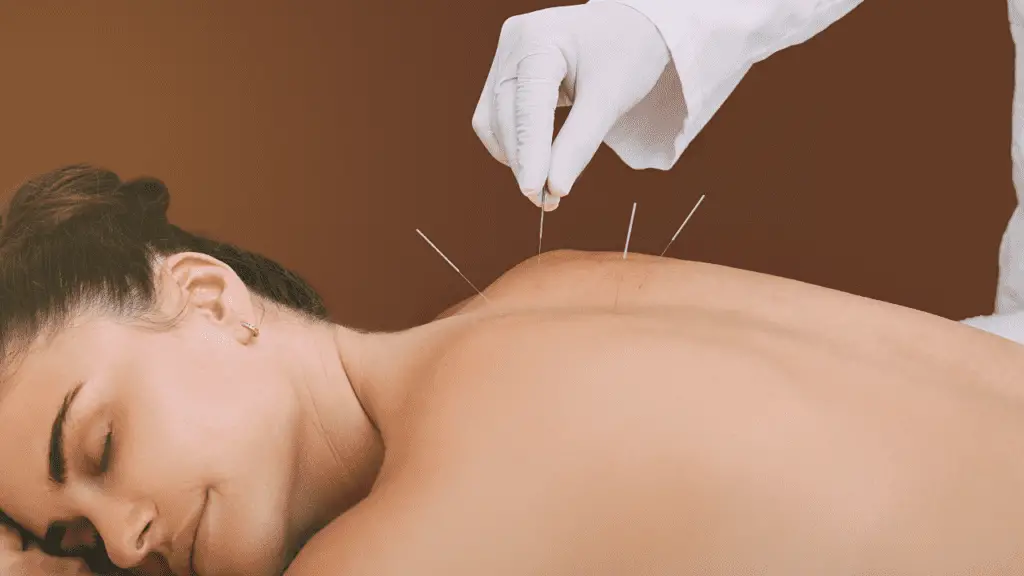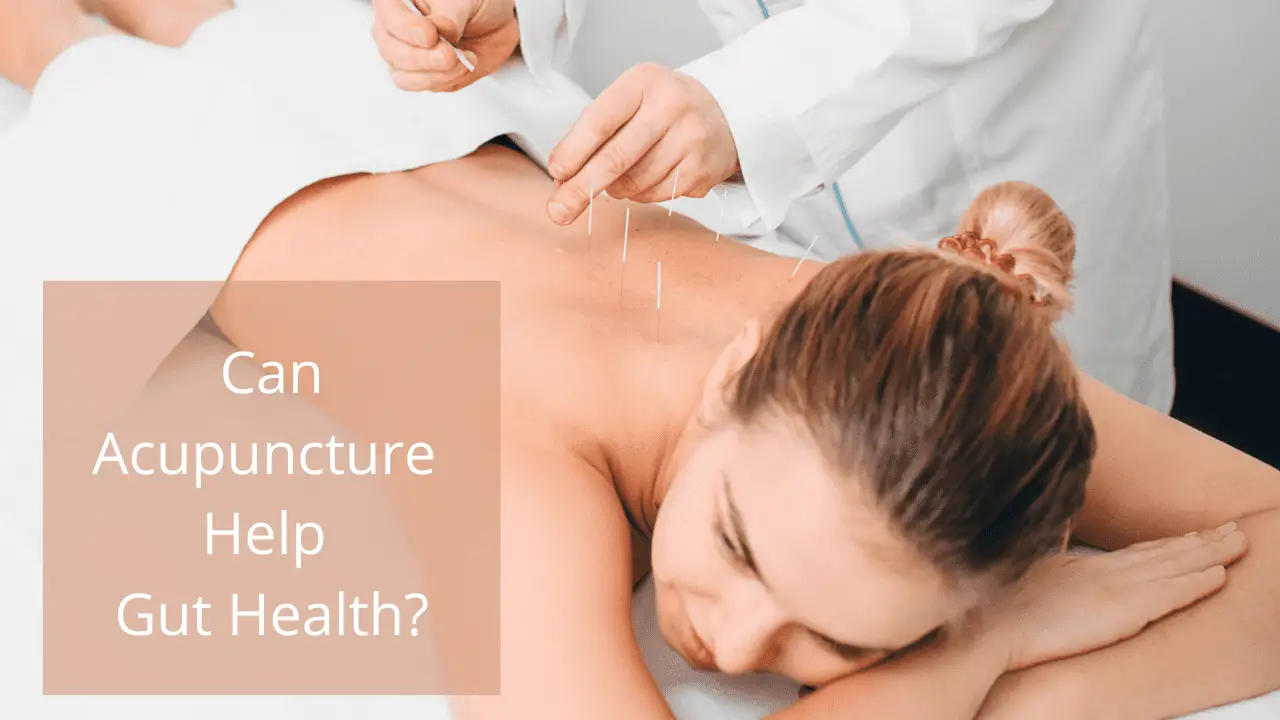Do you feel you have tried every course available to treat your digestive issues and still suffer? Undoubtedly, natural remedies are gaining popularity nowadays. Before giving up, many professionals suggest opting for natural, holistic treatment.
In a long list of natural remedies, acupuncture has caused a lot of discussion on whether it's myth or magic. Keep reading to know the answer to all your queries! Let's get to the fundamental question: could it be the solution to your gut health disorders?
What is Acupuncture?
Starting with the basics, let's dive into what goes on in acupuncture. Acupuncture is a process where an acupuncturist inserts multiple hair-thin metallic needles in various pressure points.

You may be worried about the idea of the pain. However, most people state that the process is painless. At most, you'll only experience slight discomfort if you're getting it done by a professional. Incorrect needle placement can trigger pain, so finding a certified acupuncturist is integral.
What's the Science behind Acupuncture?
Acupuncture isn't a modern medicinal practice. Instead, it's an ancient philosophy that has been around for more than two centuries!
The origin, as far as it's known, dates back to the Chinese, which believed in the concept of ‘qi.' According to this Chinese tradition, qi is the inner human body energy flow. Your mental and physical well-being is at its best when it's in the right places.
On the opposite end, when it's blocked or flowing to the wrong locations, that's the reason behind ailments. Per this philosophy, acupuncture can redirect the negative energy flow to the right places.
If this ancient belief doesn't convince you, modern science has also proved the benefits of acupuncture for overall health. While more research is needed, various studies conclude that acupuncture can improve health.

Currently, medical studies depict that acupunctures target specific pressure points in the body. Each pressure point corresponds to a different condition. For instance, studies show putting pressure on the space between your thumb and index finger can relieve headaches.
When needles are inserted at any acupressure point, the incision causes a minor injury. Consequently, the nervous system sends a signal that reboots the immune system, initiating a biochemical reaction. In other words, it increases blood circulation, healing, and pain modulation in those areas.
How Does Acupuncture Work for Gut Health?
As the ever-increasing studies on acupuncture increase, it has reportedly succeeded in treating gut health disorders in several patients.
Common gut issues include diarrhea, constipation, nausea, acid reflux, bloating, and abdominal pain. Other conditions with more research required corresponding to acupunctures are Crohn's Disease and Irritable Bowel Syndrome (IBS). Credible organizations in this sector, such as NIH and WHO, have backed up these claims.
So, how does acupuncture improve gut health? Acupuncture targeting gut disorders is placed at relevant acupressure points (more on these points later). The needle incisions stimulate the nervous system alongside the endocrine system.
If you've heard of the fight or flight response, your body has an opposite system. This standard mechanism is the parasympathetic system (PNS), also called the ‘rest and digest response.
In this mode, an increased amount of blood flow is redirected to your digestive tract. Moreover, this signals the salivary gland to produce more digestive enzymes. Additional benefits include pain relief and decreased inflammation in the digestive tract, factors that otherwise hinder digestion.

The combination of these factors accelerates intestinal activity and digestive muscles, thus, escalating metabolism and regulating gastric acid production.
Since acupuncture activates the PNS, your body begins to enter a relaxed state. Amongst several benefits of a balanced nervous system, one includes reduced stress. Your digestive system is at its optimum and adds another element that aids digestion.
A healthy stomach contributes to effective gut health. This way, digestion is at its best, you're absorbing maximum nutrients, and symptoms of gut disorders reduce significantly.
What Are the Acupressure Points for Gut Health?

Each symptom has a set of acupressure points. Therefore, you must look up the areas that align with your symptoms to improve gut health. The following acupressure points are the most commonly targeted areas to improve digestion:
BL21 – Relieves Abdominal Cramps, Nausea, Bloating, Gas, and Diarrhea
Locate the spinal curve on your back and move 1.5 inches sideways to it. You will apply pressure in a circular motion for one minute. Avoid in case of spinal injury.
CV12 – Relieves Upper Abdominal Indigestion, Gas, Uncontrolled Excretions, Nausea, Inflammation
Locate four inches above the belly button. Apply gentle pressure and massage for 2-3 minutes using two or three fingers.
CV6 – Lower Abdominal Pain and Inflammation
Locate the Qihai section, around 1.5 inches below the navel. With 2-3 fingers, apply gentle pressure and massage for a few minutes.
P6 – Relieves Indigestion, Bloating, Menstrual Cramps, Lower Abdominal Pain
Locate three inches above the inner ankle bone. Using three fingers, firmly press and massage the point for 2-3 minutes.
ST36 – Relieves Most Digestive Issues and Boosts Immunity
Locate three inches below the kneecap towards the outer edge. You will need to massage in a circular motion for 2-3 minutes on both legs.
LI4 – Relieves Abdominal Pain and Improves Intestinal Functions
Locate the muscle between the thumb and index finger. Apply pressure for 1-2 minutes.
What to Expect during an Acupuncture Appointment?
You don't want to walk into an acupuncture appointment without a clue. Knowing what's coming next can help you prepare for it and calm those nerves.
When you visit your acupuncturist, they'll take your detailed medical history and the areas you want to treat. A professional acupuncturist will also tell you whether the treatment is proper.
Once that's out of the way, you are directed to a room where you'll lie down. The acupuncturist will start the process and insert the needles into the acupressure points.

During the insertion, you may feel slight discomfort or no sensations. Many patients assert it to be one of the most calming experiences. Regardless of guaranteed relaxation, acupunctures are typically painless.
Are There Any Side Effects?
As with any medical treatment, acupuncture has side effects. Before booking an appointment with an acupuncturist, consider the following common side effects:
- Minor bleeding at incision points
- Pain and bruising at incision points
- Fatigue
- Dizziness
- Soreness
- Nausea
Rare side effects of acupuncture may include rashes and allergic reactions to the needles. If this happens, these symptoms clear up within a few days after the process.
Unless it's been more than a week, you don't need to worry about them. If you experience these or any unusual symptoms, consult a doctor immediately.
Is Acupuncture a ‘Cure All' Treatment?
With the high claims surrounding acupuncture, many believe it to be a magical cure that treats all your problems. Despite common misconceptions, experts say that while acupuncture can improve multiple gut symptoms, there's no conclusive data on it thoroughly treating conditions like IBS, IBD, Crohn's Disease, etc.
Because the medical world needs more research on acupuncture, you must take alternative measures. Getting acupuncture is only one step to making an active effort to improve your health.
Besides that, chronic conditions require a lifestyle change, especially in your diet. Consult a dietician, or explore the internet for a healthy diet and meal plan for your situation.
Does Acupuncture Work Every Time?
To date, the effectiveness of acupuncture for gut health disorders has mixed results. Some patients may see a complete revival of their gut system, while others may not see any improvement at all. Similarly, where the results show after one acupuncture for one patient, another may need several appointments.

So, there's no correct answer to “will acupuncture work for my gut health problems?”. Since we are all unique, it depends on how your body reacts to it.
To attain an expert's view, you can consult your doctor before going for acupuncture. A certified acupuncturist can also assist in answering your questions and understanding whether the process is proper for you. Again, you may see improvement within a day or after several weeks; there's no set time slot.
If you don't experience any positive changes in your condition, you can book another appointment. However, if it's not working after several visits, you may consider alternative methods to keep your gut problems at bay.
DIY Tips
Don't want to jump right into an approximately $85 acupuncture appointment? You can start at home with the basic techniques before visiting the pros. More importantly, it is best if you don't try invasive acupuncture at home.
One wrong step could mean a world of pain added to your existing problems. Here are a few health tips for tackling your gut health problems at home:
Find the Right Spots
Hitting the spot, in this case, is the first critical mark to DIY acupressure. As mentioned above, there are specific points for targeting the digestive system. Furthermore, you want to get the points right to get actual results.
Master the Techniques
Each acupressure point and mission require a different method of pressure. Some might need a clockwise rubbing rotation. Meanwhile, others call for rhythmic pressure for five seconds after intervals. Search the technique, and don't forget – practice makes it perfect!
Use Essential Oils
Want to gain the dual benefits of a DIY acupuncture project? Try using essential oils while doing it. Essential oils like lavender are renowned for their effectiveness in inducing relaxation. Mix a few drops of essential oil with carrier oil and apply it to the targeted area before applying pressure.
Final Thoughts
Acupuncture is considered a holistic practice that can help with various health problems, including gut disorders. Depending on your body, it may or may not be the solution to your gut health issues. Visiting a licensed acupuncturist is the best way to begin.
One thing's for sure; there's no harm in trying acupuncture to see if it solves your issues. Considering acupunctures don't have any adverse side effects, it could just be the answer you have been looking for.





